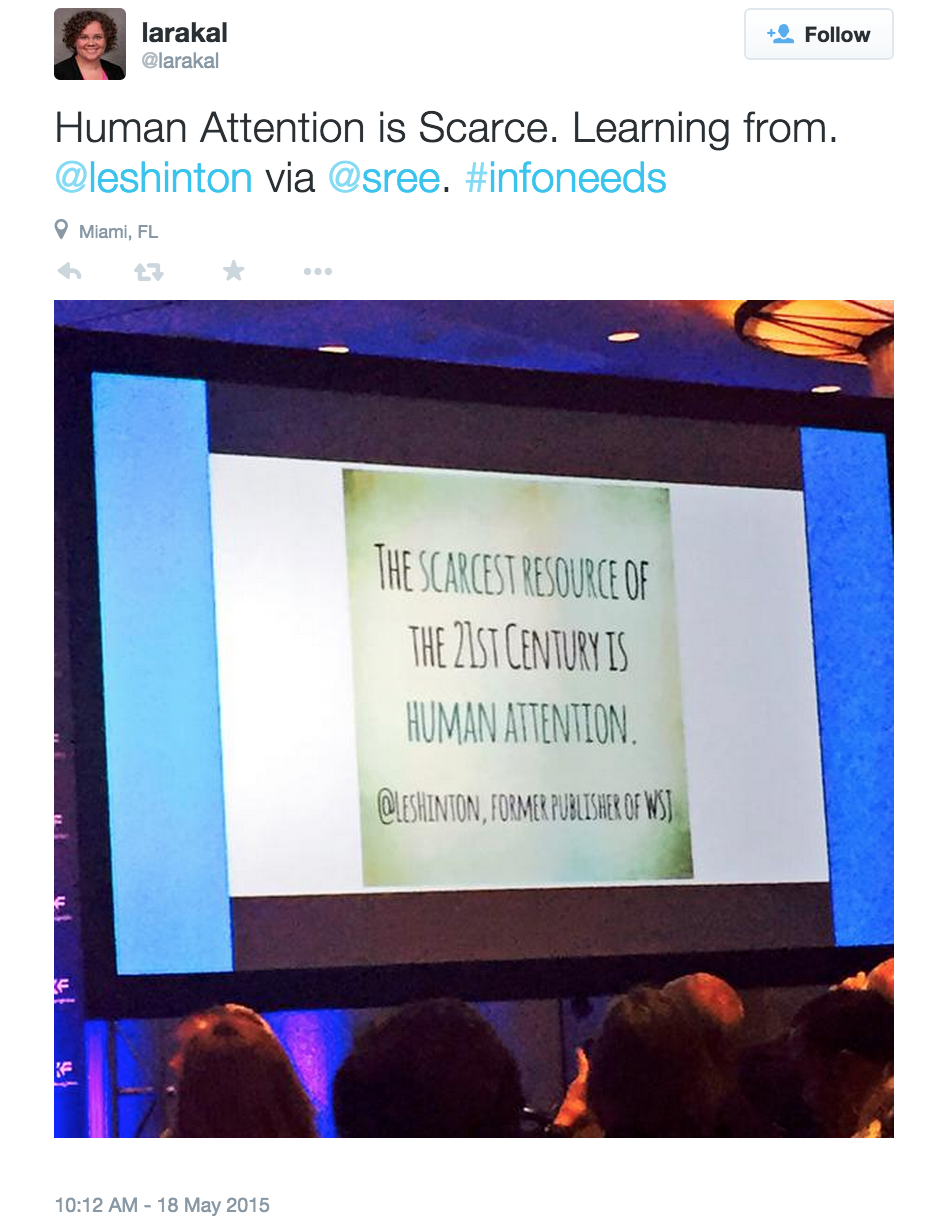
Taking institutions digital: lessons from The Met

Sree Sreenivasan, chief digital officer of The Metropolitan Museum of Art, at the 2015 Media Learning Seminar in Miami. Photo by Patrick Farrell.
The Metropolitan Museum of Art has a 175-year history, three locations, a storied collection – and now a 70-person digital team thinking of new ways to connect the physical with the virtual.
In fact, the museum spends “as much time thinking about and appreciating our visitors who come in person as well as those who come online,” Sree Sreenivasan, the museum’s chief digital officer, told the crowd at Monday’s Knight-sponsored Media Learning Seminar. “That’s a huge step for a physical space.”
In his current job, he focuses on seeking out and shaping the future of culture, which means engaging more people in art online. So far, he joked, his greatest achievement at the museum was creating a hashtag for every exhibit. Why? Because the audience of museum-goers demanded it. Clearly, though the museum is doing much more to experiment with new technologies and digitally push the envelope.
Monday, Sreenivasan spoke at the Media Learning Seminar about how institutions – be it a museum, a foundation or a media organization – can go digital, attract new audiences and meet them where they are, which is increasingly online.
Here are a few insights he shared:
Expertise still matters: In the world where everyone can be a journalist, the trained journalist stands taller, he said. Similarly, in the art world, intellectual depth is still king. A third of the MET’s web traffic, for example, goes to the Heilbrunn Timeline of Art History, which tells the history of the world through art in 7,000 objects. Even in world of Snapchat and Meerkat, scholarly information still counts, Sreenivasan said.
Be useful, simple and delightful: When creating the museum’s app, the designers used those three characteristics as their North Star. In fact Sreenivasan said, the same principles can be deployed on any new media project (they are much better, he said, than “complicated, useless and a pain in the butt.”) Sreenivasan he finds these three characteristics in his favorite apps, include Dark Sky, which tells you whether it will rain in the next hour in the spot where you are standing, and New York Times Now, which curates the most important stories from the Times.
Experiment, experiment, experiment: The MET has a media lab dedicated to the future of culture. One experiment is to develop a way for the homebound to visit the museum via a roving robot, where the person at home can actually direct the bot through the exhibition. Another involves projection mapping on an ancient temple, which allows the visitor to see the true colors of the temple as it was painted centuries ago. A small organization may not be able to try all that the MET can, but it can start small with pilot projects, Sreenivasan said. You can borrow and build off others’ ideas too – the roving bot was actually developed at another museum first, he said.
Your biggest challenge will be breaking through the noise: The MET’s biggest competitors are not other museums, but everyday “life in 2015,” including distractions like Candy Crush and Netflix, and the 1 trillion photos that will be taken in 2015. “The scarcest resource of the 21st Century is human attention,” Les Hinton, the former Wall Street Journal publisher said. The key of course is to use social and other tactics to draw eyeballs to the great content you create, and to always have an internal and external marketing plan.
Also be sure to…
Empower your experts to tell your organization’s story: The MET has been painstakingly restoring a painting from the 1600s of the Jabach family, which provided the founding collection for the Louvre. The museum’s own conservation and European painting experts blogged, Facebooked and tweeted about the project – drawing 1 million plus views before the big reveal, and raising its profile, Sreenivasan said.
If you’re hungry for more insights, Sreenivasan has a five-deck slideshow with tips on social media, or you can thumb through the slides for his Media Learning Seminar presentation.
The Media Learning Seminar, meanwhile, will continue to be livestreamed Tuesday May 19 at knightfoundation.org/live.
Marika Lynch is a communications consultant for Knight Foundation
Recent Content
-
Communitiesarticle ·
-
Communitiesarticle ·
-
Communitiesarticle ·



